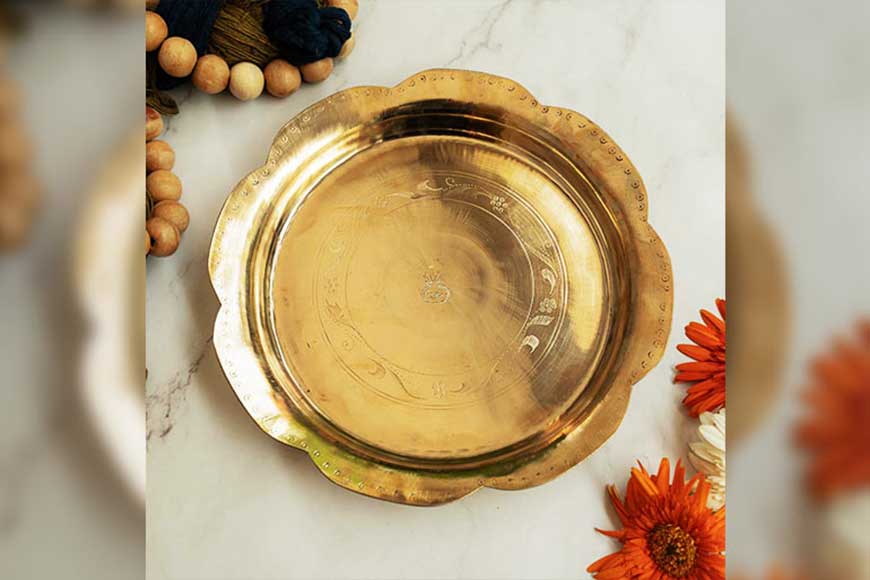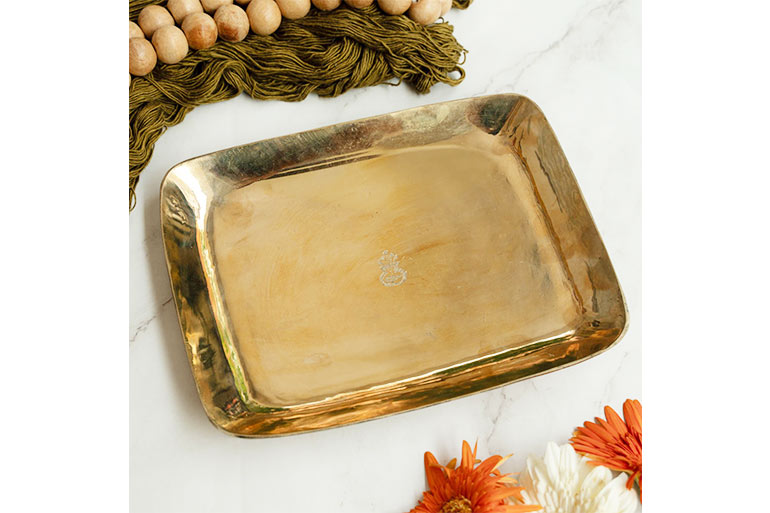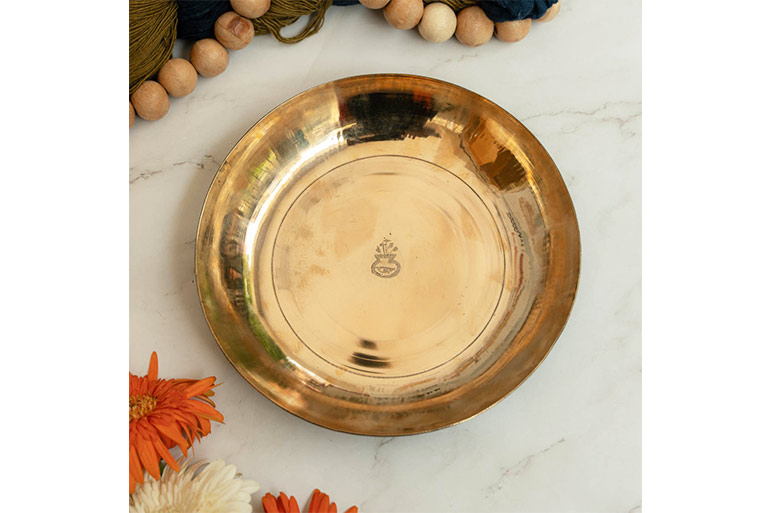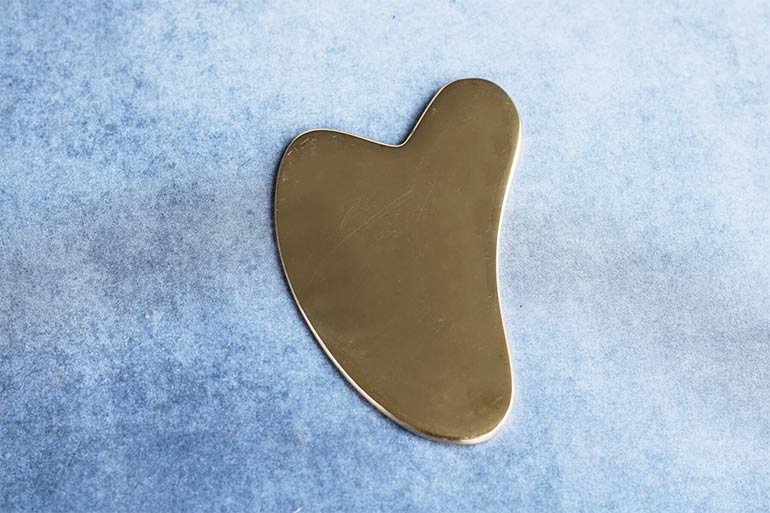Kenjakura: Bengal’s hub of exquisite bronze utensils—GetBengal story

In Charaka Samhita, the ancient Indian Sanskrit text on Ayurveda (traditional medicine), there is a phrase: Kansyam Buddhivardhakam, which means kansa, or bronze/bell metal, sharpens intellect. It pays tribute to Kansa's therapeutic powers. According to the Ayurveda, the nutritional value of food increases when it comes in contact with bell metal.
Kansa, or bell metal, has an alkalising effect on our body and is extremely beneficial for your health and wellbeing. As a result, regular consumption of food in utensils made of bell metal improves digestion, increases immunity, and helps reduce mental and physical stress. Moreover, water stored in a bell metal vessel for over eight hours is believed to promote healthy red blood cell development and bone strength. It has been known for generations for its anti-inflammatory and antiseptic properties. Bright bronze utensils have been in use in Bengali homes for centuries.

Excessive use of plastic in our daily lives exposes us to a range of health issues, including cancer, endocrine disruption, congenital disabilities, and lung disease. To avoid these, doctors suggest avoiding plastic as much as possible and replacing them with natural materials. Experts insist on using metal utensils.
There is no denying the fact that presenting a delectable platter on a variety of bright bronze utensils is a mark of aristocracy. Bell metal is a bronze alloy manufactured by mixing copper and tin together in the ratio of 78:22. The metals are heated at 700 degrees Celsius to create the alloy.
In West Bengal, top-grade bronze products are made in a small village called Kenjakura in the Bankura district.
Kenjakura is a tiny village nestled on the banks of the Dwarkeshwar River, 18 km from Bankura city. In the past, when the demand for bronze utensils was high, the industry flourished in the village. Almost every villager was involved in the small-scale industry, manufacturing bronze utensils and artifacts. In fact, around 350 families were engaged in this trade, and more than a thousand artisans were directly or indirectly involved in the metal handicrafts business. In fact, Kenjakura has gained regional attention for its export of various goods, including handloom textiles and brass utensils. Brass handicrafts produced at Kenjakura have a huge market not only within the country but also outside India. Apart from Kenjakura, there are other villages in Bankura district that produce premium-quality metal handicrafts. These include Mogra, Helna-Shushunia, Gogra, Jirra, Murganthole, Gunnath, Bikrampur, Pukhuria, Lakshmisagar, Lalbazar (Malian), Shyamnagar (Malian), Chabra (Onda), Ayodhya, and Khagra, Chuamsina. Some of these places are renowned for producing high-quality items made of brass.

During a conversation with Getbengal.com, bronzesmith Anand Babu of Kenjakura said, “The art of handcrafting kansa utensils is both laborious and time-consuming. First, copper and tin, the raw materials required to manufacture bronze, are melted in a furnace and transformed into solid bronze biscuits, shaped somewhat like a bar of soap. The bronze biscuits are then fed into a rolling machine to form bronze sheets. Skilled artisans use hammers to carefully shape and forge the Kansa sheets into the desired utensil shape. This process requires precision and expertise, as the artisans carefully hammer the sheets to create the desired thickness and form of the utensil. These days, machines are used to make the process easier. After the initial shaping, the Kansa utensils are subjected to heat treatment to enhance their strength and durability. This process involves heating the utensils to a specific temperature and then rapidly cooling them, resulting in a hardened and toughened product that is resistant to breakage. This method is known as 'tempering'. Brass is much more brittle than copper or other metals; hence, it becomes necessary for 'tempering'. After tempering, artisans use various techniques, such as polishing and buffing, to create a smooth and lustrous surface on the utensils, giving them their unique appearance. Sometimes artisans handcraft exquisite designs on the utensils as well to make them look aesthetically pleasing.”
 Gua Shas
Gua Shas
Traditionally, the artisans of Kenjakura have been crafting plates and bowls in different shapes, but for the last two years, they have been more inclined to craft bronze 'Gua Shas'. Gua Sha is the traditional Chinese practice of using a tool to apply pressure and massage the skin and muscles to relieve pain and tension. Ananda Babu says, “Every pure metal has specific qualities, and Gua Shas can be made of gold or silver, but would be too expensive. Bronze is much cheaper in comparison. So nowadays, the demand for bronze Gua Sha is on the rise. As craftspeople, we keep experimenting and adding more items to our wares. We hope to add variety to our already vast array of bronze products in the future.”
In recent years, there has been a notable resurgence of interest in bronze utensils and interior decoration pieces globally. This revival can be attributed to several factors, including the health benefits of bronze. However, bronze utensils are heavy, and their cleaning and maintenance are tedious and quite time-consuming. Besides, the cost of bronze utility items is steeper than products made from other metals. Soaring prices of raw materials are a hindrance for artisans with limited capital. That is the reason why, even four years after the COVID pandemic, the bronze industry in Kenjakura is unable to gain momentum. “Despite knowing the ill effects of using plastic and fibre utensils, people still shy away from buying bronze utensils because of the price and cumbersome maintenance process. These are insurmountable impediments for us. Our thrust now is to make people aware of the benefits of using bronze.”
High-quality bronze wares made in Kenjakura, once considered a forgotten metal of the past, are now available for customers at The Bengal Store in Kolkata. A wide range of products, from shaped utensils to ‘Gua Sha’, are available here.











